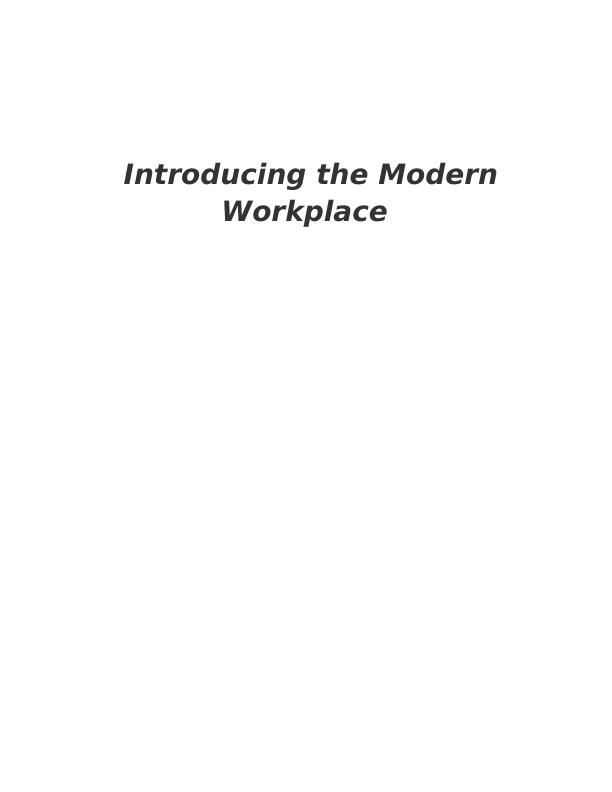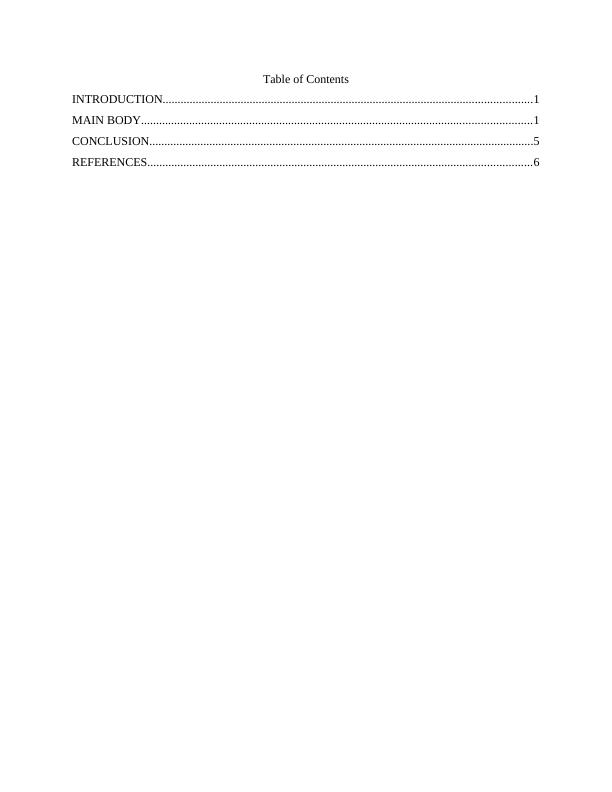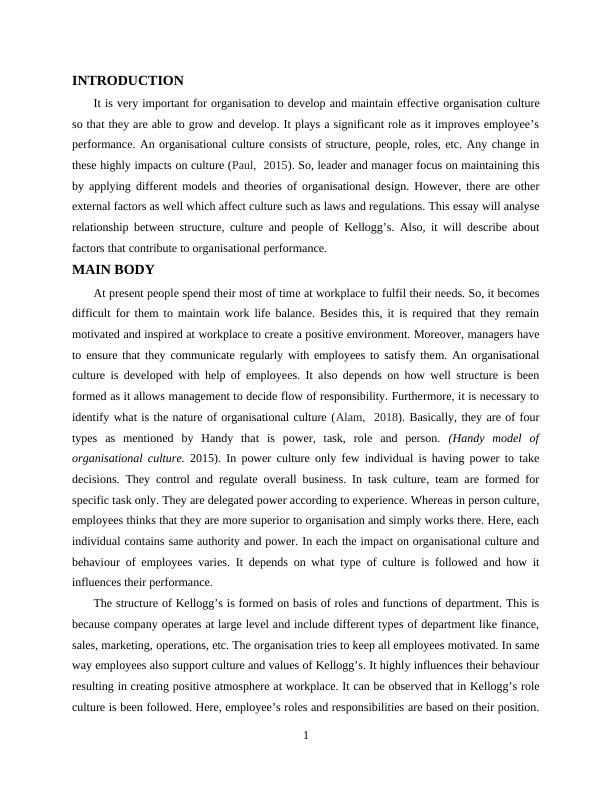Structure, Culture and People of Kellogg : Essay
8 Pages2613 Words445 Views
Added on 2020-10-22
Structure, Culture and People of Kellogg : Essay
Added on 2020-10-22
ShareRelated Documents
End of preview
Want to access all the pages? Upload your documents or become a member.
Motivational Techniques in BBC Based Organisational Behaviour
|22
|5654
|376
Assignment Organizational Behaviour
|15
|3586
|86
Introduction to Modern Workplace (pdf)
|9
|2675
|332
Organizational Behaviour Assignment - Ryanair
|15
|4467
|71
An Introduction to Organizational Behavior
|19
|5870
|60
Organisational Behaviour: Culture, Power, Politics, Motivation Theories, Effective vs Ineffective Teams, Philosophies
|12
|3206
|31



